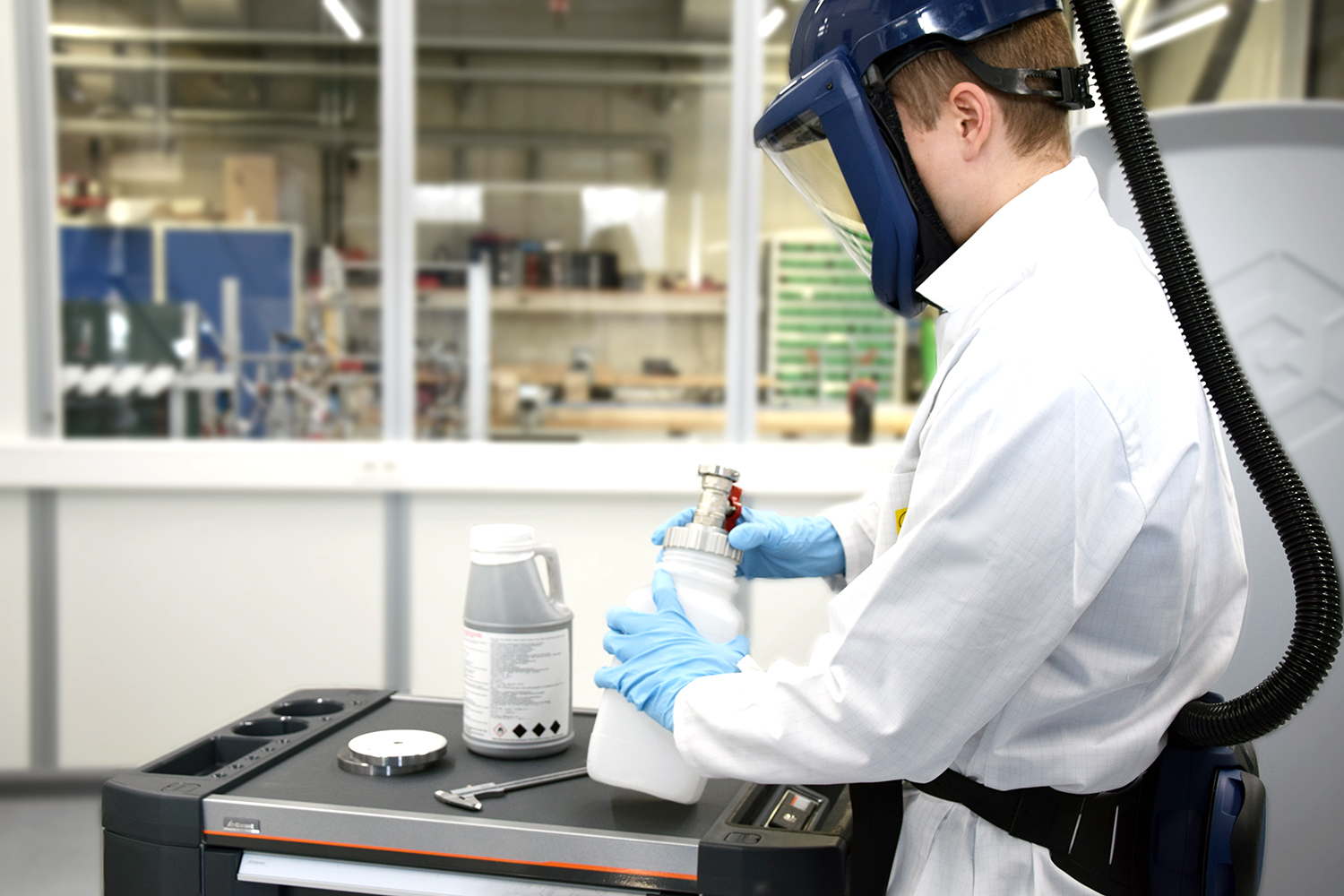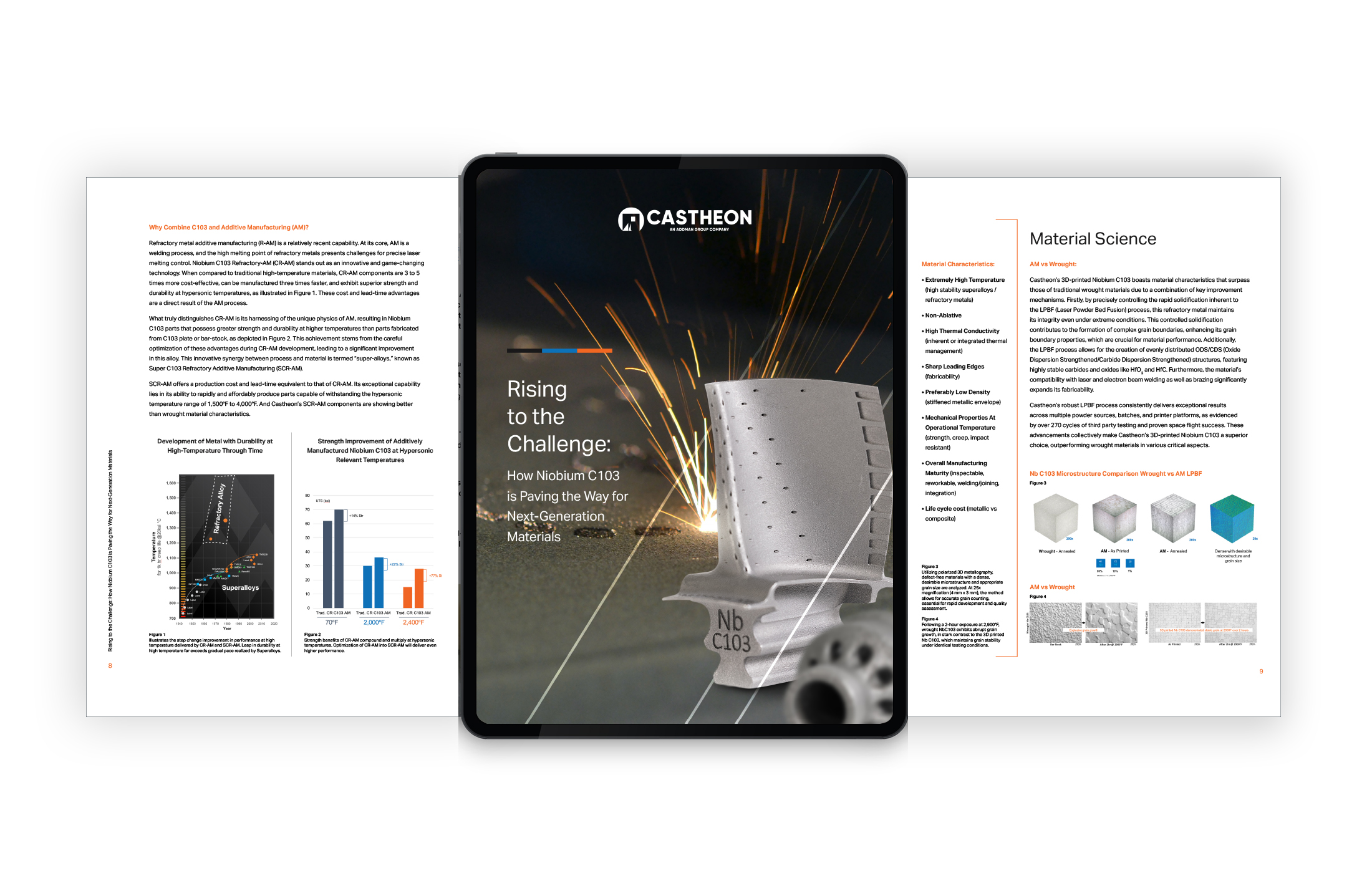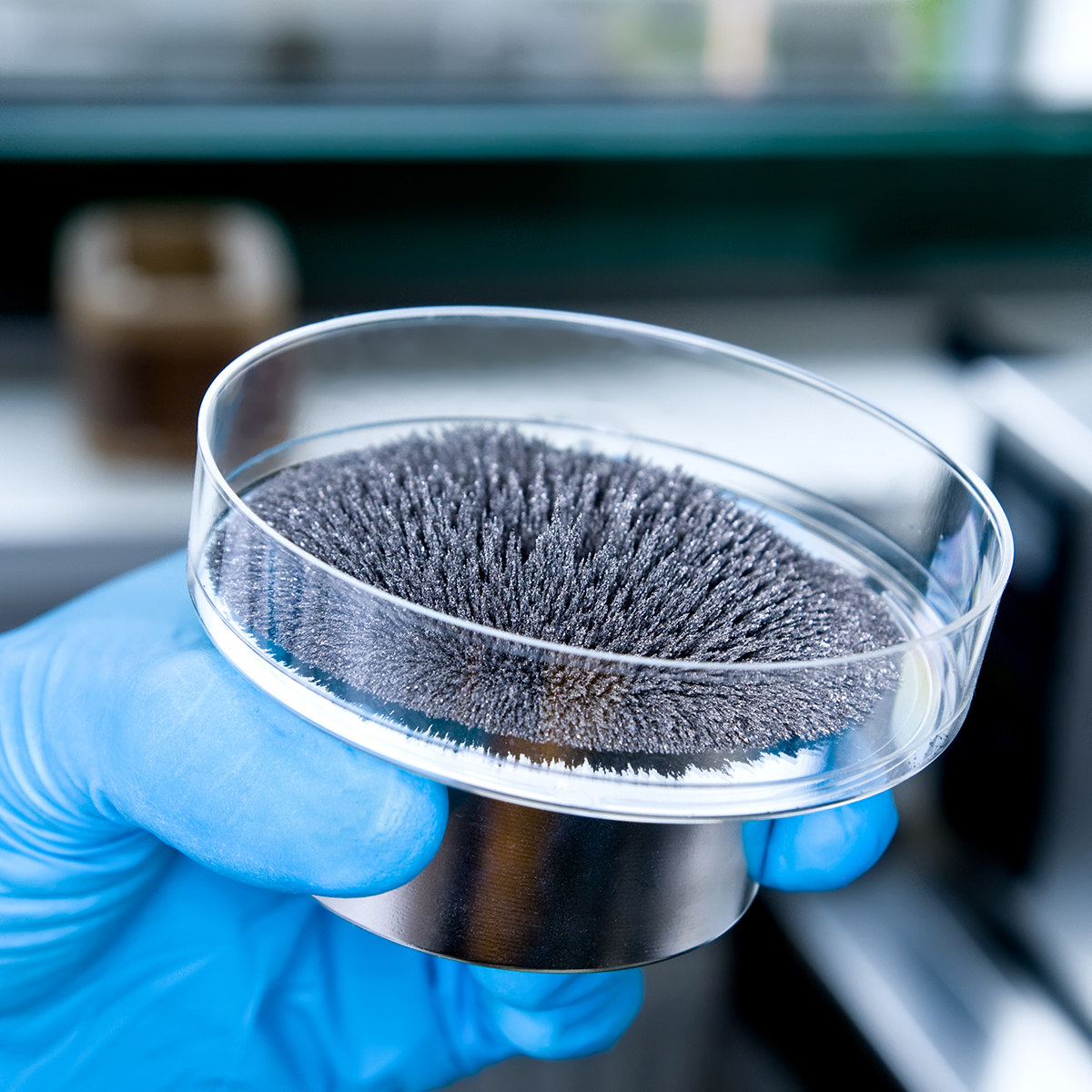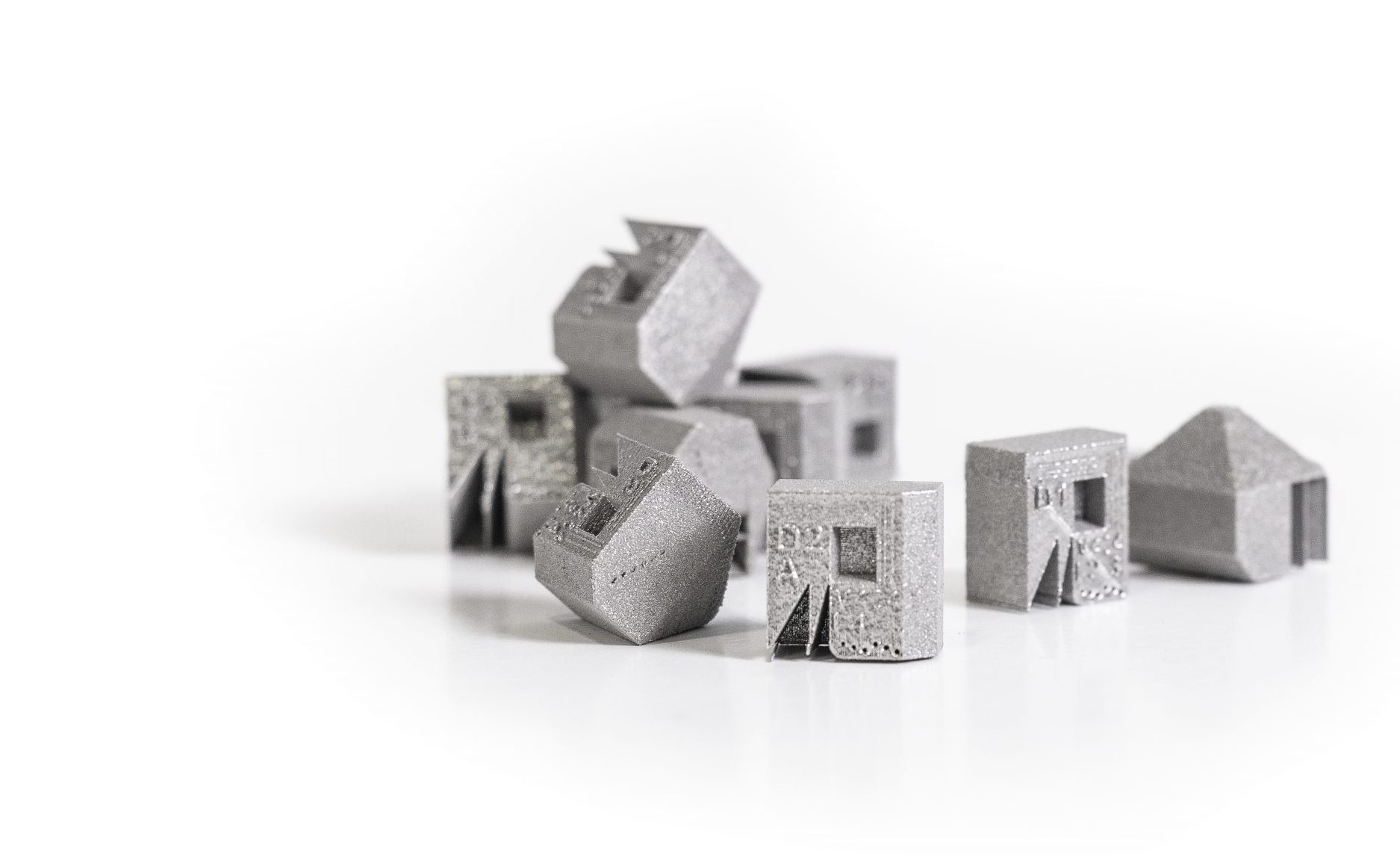We specialize in developing advanced AM materials and structures while providing the most robust processes to ensure superior AM material properties.
Material Development

Our team of experts is well-versed in the principles of metallurgy, including the study of metals and their properties, as well as the processes involved in the extraction, purification, alloying, and processing of metals and alloys.
Through our advanced metal additive manufacturing capabilities, we are able to produce high-quality metal powders using various atomization processes. Our team understands that the quality of raw powder is critical to the success of the 3D printing process, and we work diligently to ensure that our powders meet the highest standards of quality, including size, shape, surface attributes, and porosity.

How Niobium C103 is Paving the Way for Next-Generation Materials
Embark on an aerospace journey like never before. Our eBook unveils the incredible story of Niobium C103—a superalloy that has earned its wings in the aerospace industry. Dive into the historical narrative, understand its unmatched properties, and witness its transformational role in aviation. Ready to soar? Download the eBook now.

Our material development services can help businesses overcome challenges related to material selection and performance, resulting in better outcomes in terms of product quality, cost-effectiveness, and efficiency.
We offer our customers access to materials that are tailored to their specific needs. This can result in better performance, higher quality parts, and increased efficiency in the manufacturing process. We can help companies overcome challenges related to material selection and performance, and ultimately lead to better outcomes in terms of product quality, cost-effectiveness, and efficiency.
A Critical Piece of Material Development
Choosing the right material is crucial in building a business case as it can greatly impact the cost of the final product. In addition to cost, the choice of materials can also affect the quality, durability, and functionality of the final product. Different materials have their unique properties, strengths, and weaknesses that need to be considered when selecting the appropriate one for a given application. Our team of experts has extensive knowledge and experience in working with a wide range of materials and can assist you in choosing the optimal material that aligns with your specific requirements and goals.
Not all powders are identical, even if they share the same chemical composition and particle size distribution. In fact, their behavior in the machine may differ. This is due to factors such as powder morphology, which affects the flow, spread, and packing characteristics of the powder within the machine. Additionally, the powder used can also influence the surface roughness of the final product. Powders with high levels of porosity within the particles can enter the final product, resulting in suboptimal material performance.
For the polymer material selection, there are various factors to consider such as the part’s mechanical properties, chemical resistance, and thermal stability. We have a range of polymer materials that are suitable for different applications. After considering quantity, budget, intricacy, material, and turn-around time, we’ll partner with you to find the best-fit materials for your project

The development of the Gao Block is a significant contribution to material and process development in metal additive manufacturing. This physical metallurgy-based creation has greatly accelerated and enhanced the improvement of AM parameters and microstructures, resulting in stronger and higher-quality materials. By providing a clear indicator of successful AM parameters for a particular alloy through a seamless build of the Gao Block without any distortions, it has enabled the efficient and effective development of AM processes for a variety of applications. Dr. Gao’s work and the Gao Block serve as a testament to the importance of material and process development in pushing the boundaries of metal additive manufacturing and advancing the field as a whole.
What is Metallurgy?
Metallurgy is a branch of materials science that deals with the study of metals and their properties, including their physical and chemical behavior, their structure, and their applications. The discipline encompasses a range of processes, including the extraction, purification, alloying, and processing of metals and alloys.
The applications of metallurgy are broad and diverse, with metals and alloys being used in everything from construction and manufacturing to electronics, transportation, and aerospace. By understanding the properties and behavior of metals, metallurgists are able to develop new materials and processes that are more efficient, durable, and cost-effective.